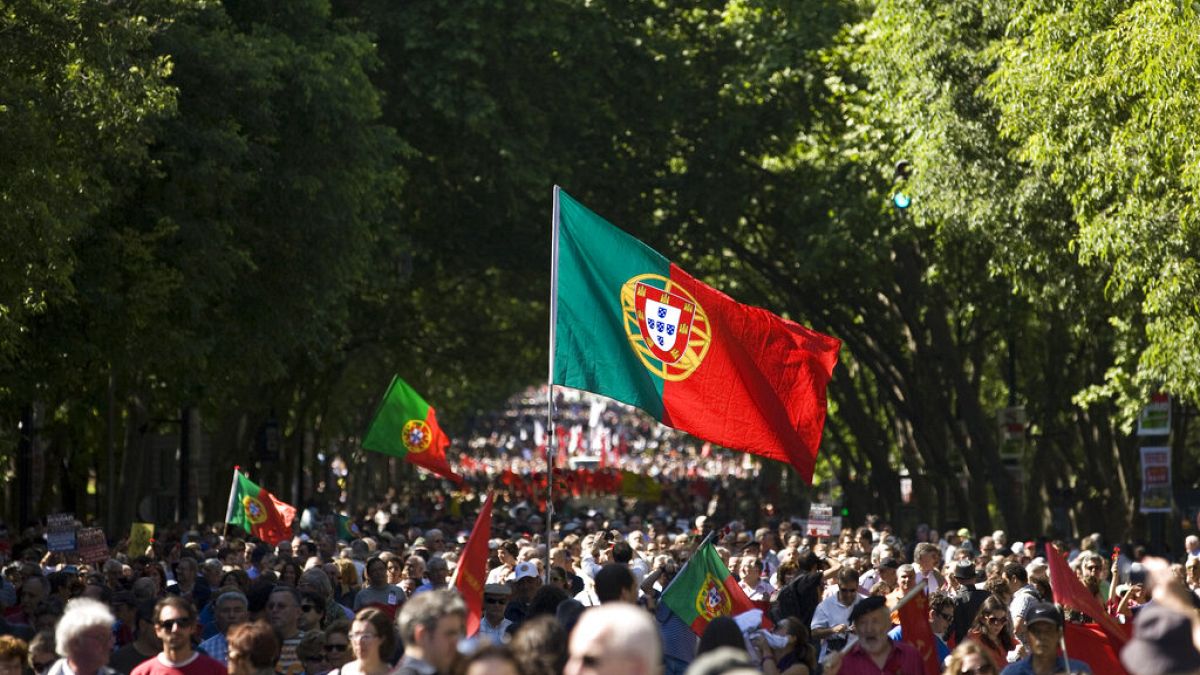
On 25 April Portugal celebrates 50 years of democracy. Since its 1974 revolution, it has embraced freedom of the press, free elections, and the right to healthcare, to strike and to education. But as with every year’s April 25 celebrations, the country is discussing what still needs to be done.
There is much to celebrate. Raquel Varela, social historian at NOVA University Lisbon, singles out the revolution’s legacy of workers’ rights, which had never previously existed in the country. She also points to the construction of the National Health Service and the education system which, in her opinion, created “qualitative advances” on a social level.
“It’s not just about rights, freedoms and guarantees,” says the NOVA FCSH professor, “but also the welfare state and job security and protection, because many of these things have unfortunately gone backwards since the late 80s. What has remained is the realisation that it is possible to live differently.
“This utopia is a hope that can’t be erased. There’s no going back from that point of view. You can go back on material realisations, but you can’t go back on the idea in action.”
Portugal is undoubtedly better off today than it was 50 years ago, but the economy still suffers from low productivity, workers face precarious labour conditions, and public services are deteriorating.
According to Eurostat data, productivity per worker in Portugal is 28 per cent lower than the Eurozone average, and the country has been at the bottom of productivity in the single currency area for at least 10 years. In the last six years, it has been overtaken by the three Baltic countries Estonia, Latvia and Lithuania – and outside the Eurozone, it has fallen behind Croatia, Romania and Poland.
Varela tells Euronews that the country’s productivity problems are directly linked to the fact that capital is more favoured than labour.
“There has been, especially since the 21st century, an intense degradation of public services with a high return on capital through interest, therefore, through loans, through public debt, which is going to destroy installed capacity, the country’s capacity to produce, and also erode public services,” she argues.
The country’s GDP per capita is also still below the European average. In 2023, according to Eurostat estimates, Portugal rose to 18th place among European Union member states, up two places on the previous year and overtaking Poland and Estonia. However, it remains 17 per cent behind the EU average.
“Portugal is still at the tail end of Western Europe, it’s still the poorest country in Western Europe,” says University of Manchester economic historian Nuno Palma. “So Portugal hasn’t improved its relative situation in terms of country rankings.
“Portugal is still the poorest, it’s the last, the most backward in terms of human capital, in terms of the education levels of its population, it’s still the last on the list in Western Europe, in terms of the functioning of political institutions.”

According to Palma, author of the book The Causes of Portuguese Backwardness, argues that funds provided by the European bloc fail to stimulate innovation the Portuguese economy would benefit from.
Palma argues they mean the population does “not always feel the urgency to change” while companies compete for these funds without “a concern for creating transformative dynamics for the economy”.
“Instead of being the country’s salvation, as they are often seen and described by political actors, being a bazooka that will save the country or a shower of millions, in reality these funds have very negative effects, both for the Portuguese economy, in particular for the part of the economy that is subject to international competition, the so-called tradable goods and the tradable sector of the economy.
“On the other hand, they also have negative effects on the political process that exists in Portugal. Basically, European funds are a kind of Band-Aid or aspirin that hides the consequences of bad decisions made at a political level.”
Palma also accuses the two major parties that have governed the country post-revolution, the PS and PSD, of failing to generate reforms that would allow Portugal to keep up with the rest of Europe.
Four years ago, Portugal was downgraded to a “flawed democracy”, and it has yet to recover the “full democracy” status it enjoyed in 2019.
It is one of only three Western European countries classified as a “flawed democracy”, along with Belgium and Italy.
The Democracy Index 2023, released by the Economist Intelligence Unit, places the country 31st in the world ranking, down three places on last year and the worst result since 2013.
The fall is mainly due to the assessment given to the “functioning of government” criterion, where it only registers a score of 6.79, a substantial drop on last year’s 7.50.





